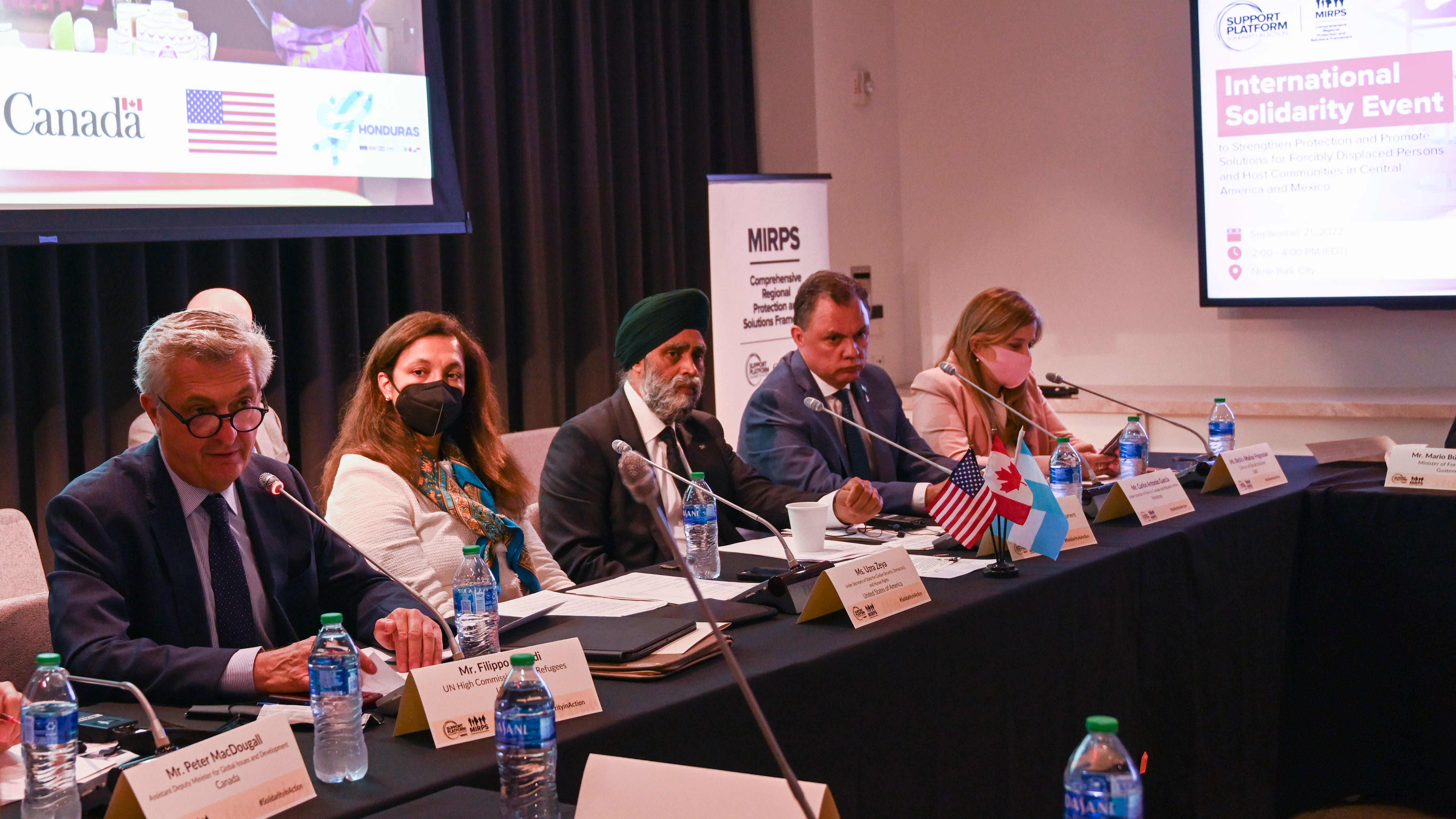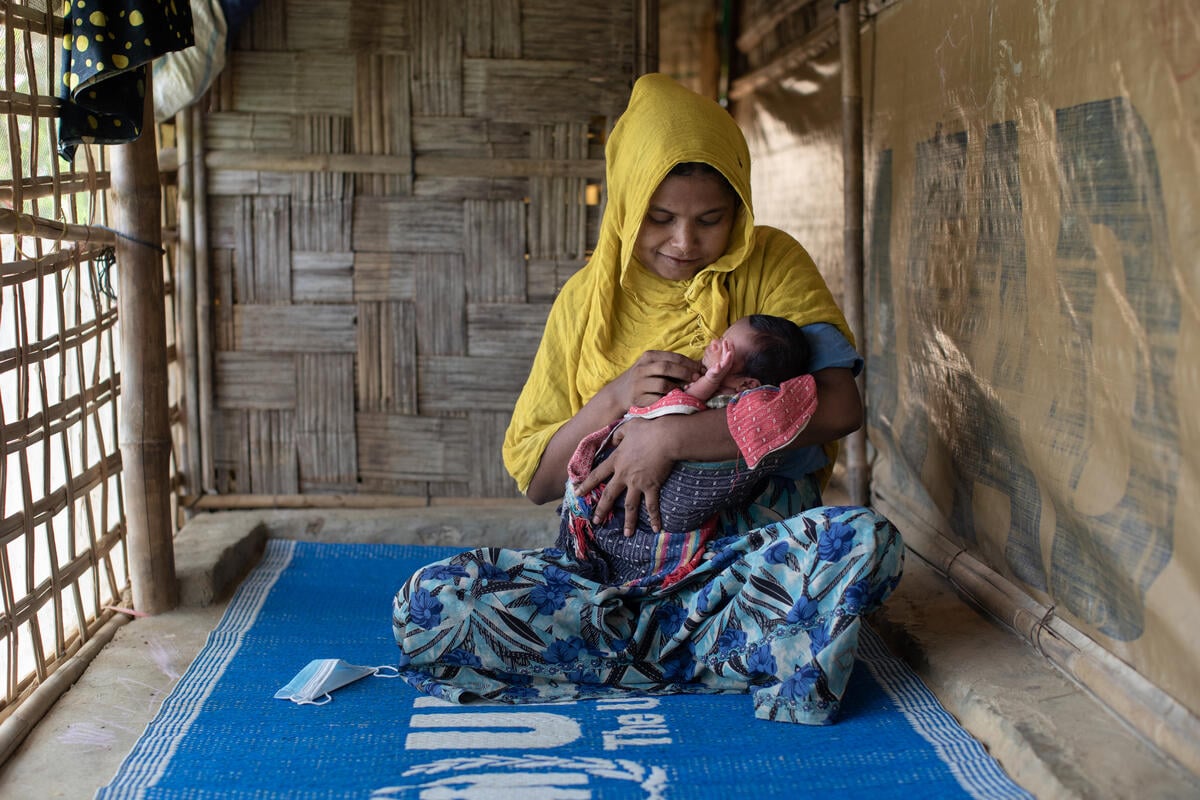High Commissioner for Refugees urges action on Africa
High Commissioner for Refugees urges action on Africa
U.N. High Commissioner for Refugees Sadako Ogata on Thursday appealed to the international community to devise concrete measures aimed at easing the critical plight of millions of African refugees and displaced people.
In an address to the U.N. Security Council, Mrs. Ogata noted that her organization now cares for about 6 million refugees and displaced people in Africa, accounting for a substantial portion of UNHCR's global resources. She expressed particular concern about the increasing numbers of internally displaced people who, unlike refugees, have not crossed international borders.
"In the last few years, the pattern of refugee crises, especially in Africa, has undergone significant changes," she told the 15-member Security Council. "Refugees continue to flee violence and conflict - almost invariably compounded by poverty - and to seek asylum in safer countries. Others - and increasingly so - seek refuge as internally displaced people in safer parts of their own countries."
The bulk of uprooted people in Africa today are internally displaced people, or IDPs. Mrs. Ogata said caring for them is often difficult and dangerous because of their isolation and their location in or near conflict areas.
"Hundreds of thousands of people at risk in war areas such as South Sudan, the Democratic Republic of the Congo, Burundi, Angola and Sierra Leone ... are presently not accessible to humanitarian agencies," she said. "And where such access is possible, it is often very dangerous."
While UNHCR's mandate focuses on refugees, Ogata noted that the root causes of their displacement do not fundamentally differ and that they all deserve help and protection. She warned against isolating IDPs as a separate category.
Refugee crises cannot be resolved unless the fighting is stopped and the root causes addressed, Mrs. Ogata said. In some regions of Africa, the control of valuable natural resources such as oil and diamonds is of more concern to the warring parties than the welfare of the population. The money generated from these resources allows global arms traffickers to provide a steady stream of weapons to fuel the conflicts.
"The worst pages of colonial history seem to live again in countless situations in which people struggle to survive while small groups benefit from Africa's wealth and enormous resources are wasted in pursuing war," she said.
Mrs. Ogata lamented the fact that there are no effective conflict-resolution mechanisms in place in Africa and that armed groups in one country are often supported by governments in neighbouring states. The Central African region, for example, is torn by a series of inter-linked wars. Moreover, she said, efforts to consolidate the peace - once it is attained - are timid and piecemeal. She cited the examples of Rwanda and Liberia.
She also noted a "grave imbalance" in the provision of assistance for Africa as compared to that provided other parts of the world.
"What is provided to refugees in Africa, including food and other basic survival items, is far less than in other parts of the world," she said. "This is unacceptable."
The Security Council's current "Month of Africa" provides it an opportunity to focus on how it can help to resolve some of these issues, the High Commissioner said.
"Humanitarian action alone will not be able to solve any of the problems leading to forced displacement," she said. "It cannot substitute for governments, and the Security Council, in areas for which they have a clear responsibility, such as peacekeeping and peace-building. The Council has an essential role to play in preventing, containing and resolving conflicts - and hence refugee problems - in Africa."
In concluding, the High Commissioner remembered "the most vulnerable" of those UNHCR is trying to help. They include refugee women and children exposed to even greater risks than their peers living at home, including rape, AIDS and other epidemics, and forced military recruitment. She also cited the elderly, "whom I so frequently meet on my field trips, and whose fear and despair and exhaustion never fail to anguish me."
"They, above all, are the victims of the wars that we do not stop," she said.
UNHCR, a two-time Nobel Peace Prize winner, currently cares for 21.5 million refugees and displaced worldwide. It observes its 50th anniversary this year and is establishing a Refugee Education Trust aimed at providing refugees - especially in Africa - with post-primary education while in exile.








